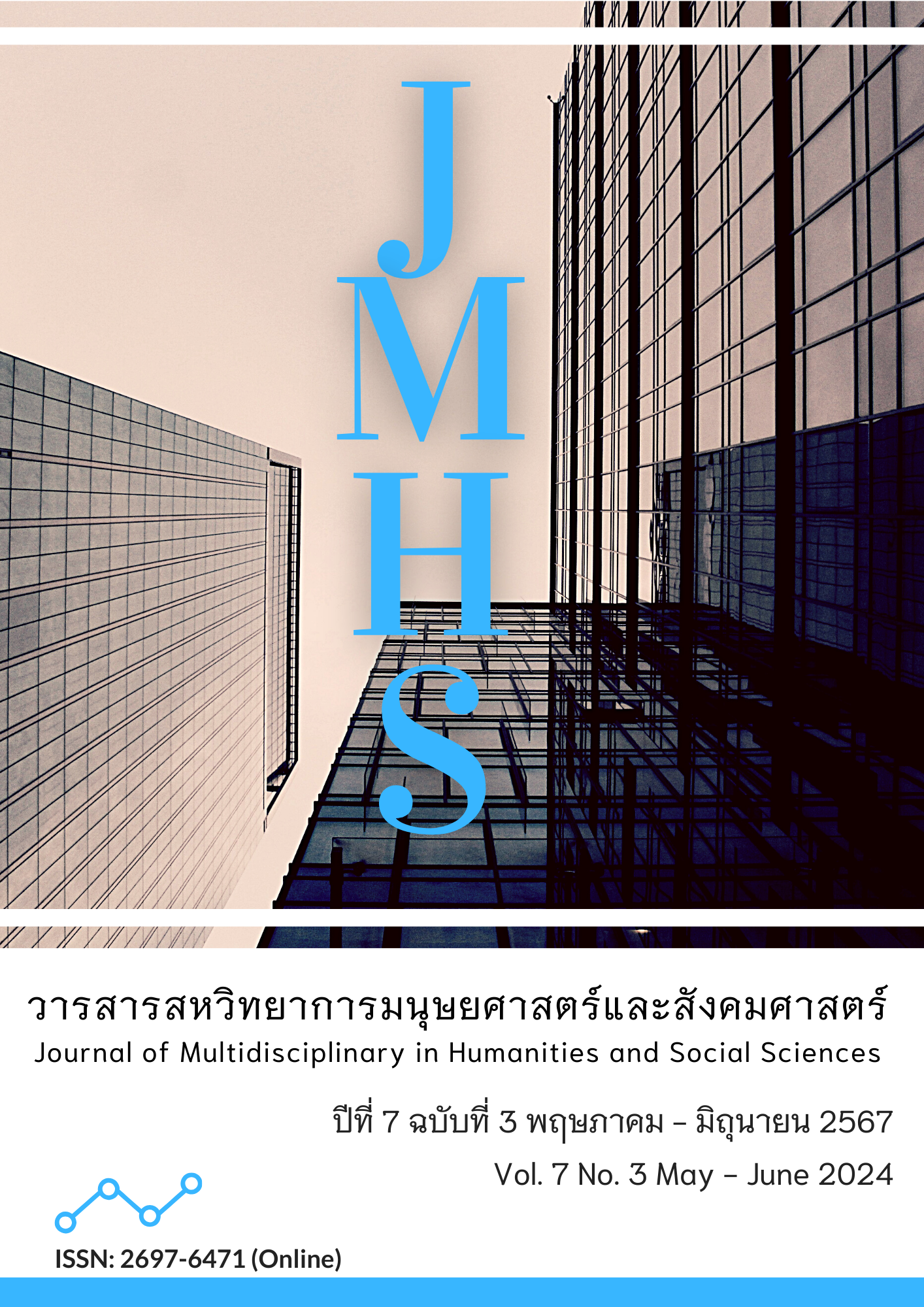Pleng Cha Rueng Tao Thong in the Dimension of Philosophy
Main Article Content
Abstract
Research is aimed to analyze the aesthetics of Khong Wong Yai melody in Pleng Cha. Researcher uses results from the previous research, a study of musical uniqueness of Khong Wong Yai melody in Pleng Rueng Tao Thong, as primary data. Researcher studied document, interviewed, and additional data with specialist in Thai music, philosophy, and general listeners. Researcher did analysis and hermeneutic by using concept of Thai music theory and perception in philosophy dimension. The result found that, Researcher assumed that the original composer created music without score, but he used the world of idea to create complicated musical structure in concept to complete the structure of Pleng Cha. And this process in philosophy is considered as the meaning of intellectual game in humanity and eliminates the previous process that the world of idea imitate image in perception. The music shows meaning of human, this is the song of intelligence, which is consistent with the concept of Vedana (neutral) in the Buddhist philosophy. So Pleng Cha Rueng Tao Thong is presented as the philosophy of Thai music (Eastern philosophy).
Article Details

This work is licensed under a Creative Commons Attribution-NonCommercial-NoDerivatives 4.0 International License.
Views and opinions appearing in the Journal it is the responsibility of the author of the article, and does not constitute the view and responsibility of the editorial team.
References
กรมศิลปากร. (2481). เอกสารบันทึกโน้ตเพลงไทย ทางฆ้องวงใหญ่ (ฉบับบันทึกรายละเอียดแต่ละทาง). กรุงเทพฯ: หอสมุดดนตรีพระบาทสมเด็จพระเจ้าอยู่หัวรัชกาลที่ 9, หอสมุดแห่งชาติ.
กรมศิลปากร. (2481). เอกสารบันทึกโน้ตเพลงไทย ทางฆ้องวงใหญ่ (ฉบับมติ). กรุงเทพฯ: หอสมุดดนตรีพระบาทสมเด็จพระเจ้าอยู่หัว รัชกาลที่ 9, หอสมุดแห่งชาติ.
กรมศิลปากร. (2534). สำเนาไมโครฟิล์ม โครงการฟื้นฟูโน้ตเพลงไทย ฉบับบรมครู. คณะดุริยางคศาสตร์, มหาวิทยาลัยกรุงเทพธนบุรี.
ไชยยะ ทางมีศรี. (2567). ข้าราชการบำนาญ กรมศิลปากร. สัมภาษณ์, 1 มีนาคม.
มานพ วิสุทธิแพทย์. (2556). ทฤษฎีการวิเคราะห์เพลงไทย. กรุงเทพฯ: สันติสิริการพิมพ์.
มานิตย์ จุมปา. (2559). ความรู้พื้นฐานเกี่ยวกับกฎหมาย. (พิมพ์ครั้งที่ 14). กรุงเทพฯ: จุฬาลงกรณ์มหาวิทยาลัย.
เมธา หริมเทพาธิป. (2566). ผู้เชี่ยวชาญพุทธปรัชญา มหาวิทยาลัยราชภัฏสวนสุนันทา. สัมภาษณ์, 18 มีนาคม.
วิเชียร อ่อนละมูล. (2566). ผู้เชี่ยวชาญปี่พาทย์ มหาวิทยาลัยราชภัฏจันทรเกษม. สัมภาษณ์, 20 พฤศจิกายน.
วิรุณ ตั้งเจริญ. (2546). สุนทรียศาสตร์เพื่อชีวิต. กรุงเทพฯ: สันติสิริการพิมพ์.
สนั่น มีขันหมาก. (2565). ผู้เชี่ยวชาญการประพันธ์เพลงไทยสากล. สัมภาษณ์, 19 มีนาคม.
สีน้ำ คล้ายวงศ์. (2561). ศึกษาเอกลักษณ์ทางดนตรี ทางฆ้องวงใหญ่ เพลงช้าเรื่องเต่าทอง(ปริญญานิพนธ์ศิลปศาสตรมหาบัณฑิต). มหาวิทยาลัยศรีนครินทรวิโรฒ.
สมบัติ พรศิริเจริญพันธ์. (2559). เฮอร์เมนูติกส์: ศาสตร์แห่งการตีความและศิลปะแห่งความเข้าใจ. นนทบุรี: วัชรินทร์ พี.พี.
โสรัจจ์ หงศ์ลดารมภ์. (2562). ปรัชญาทั่วไป. กรุงเทพฯ: จุฬาลงกรณ์มหาวิทยาลัย.
Said, E. W. (1978). Orientalism. United States: International and Pan-American.


